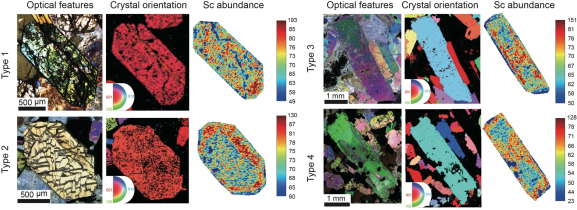 HKU Department of Earth Science
HKU Department of Earth Science
Seminar

Scandium geochemistry of the Mouding mafic-ultramafic intrusion, SW China
-
Date
July 11,2022
-
Time
3:00PM
-
Venue
Zoom only
-
Speaker
Mr. Zhenchao WANG Department of Earth Sciences, HKU
Scandium is important in modern technology and is regarded as a strategic metal in many countries. It is highly dispersed in the crust and hardly forms independent minerals. Clinopyroxene is the most important Sc-bearing mineral in some world-class deposits. Nonetheless, factors controlling the Sc distribution and enrichment in clinopyroxene is underexplored, impeding the understanding of the geochemical behavior of Sc and the formation of Sc deposits. To solve these problems, the Mouding Sc deposit in ELIP, the first discovered magmatic Sc deposit in China, was studied systematically. Clinopyroxene in the intrusion is diopsidic in composition with high Sc contents (80–105 ppm). In-situ trace element mappings on diopside reveal homogeneous, zoned, swallow-tailed and hourglass internal Sc distribution patterns. These textural patterns can be produced through kinetically controlled incorporation of Sc on different crystal faces. The preferential substitution of Sc can take place at the {100}, {110} and {010} prism faces because of the high flexibility of the octahedral M1 protosites. In a micro view, textural coarsening processes control the nucleation and growth of clinopyroxene, which is promoted by the hydrous parental magma due to its low viscosity and active convection. The active flow and efficient interstitial communication can direct compatible elements from the magma chamber into clinopyroxene, in favor of the formation of Sc-rich clinopyroxene. In a macro view, the high abundance of alkali in the parental magma increases the partition coefficients between Sc and clinopyroxene, further promoting the formation of Sc-rich clinopyroxene. This study emphasizes that kinetic effects should be carefully examined in relation to the Sc distribution and mafic-ultramafic intrusions derived from hydrous and alkaline magma should be targets for exploration of magmatic Sc deposits.
Additional information: Mr. Zhenchao WANG, zhenchao@connect.hku.hk
